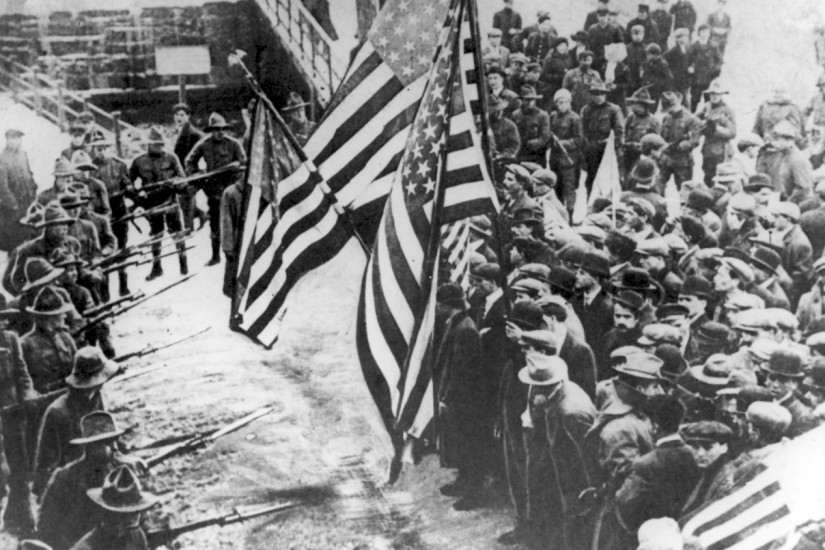Dissenting movements today are reminiscent of James Baldwin’s criticism of the stridency of the American protest novel: “a mirror of our confusion, dishonesty, panic, trapped and immobilized in the sunlit prison of the American dream.”2 Dark forces are ready to move on that prison if enlightened ones do not.
Screws have been turning on the American working class for well over a generation now. In fact, for the bottom quintile of the employed population, real wages peaked during the Nixon administration. Expectations are low and anger is high. Both the moral outrage in the streets and the technocratic neoliberalism in Democratic Party headquarters are traps. The way forward, the way to build a cross-class alliance that can include the working-class vote—a vote made up not only of white guys, but of a full mosaic of racial, gender, and cultural complexity—is to look toward a compelling progressive vision for the nation.
Nationalism is dangerous stuff in places with a history of settler colonialism and territorial expansion like the United States, but Lincoln pulled it off. So did Eugene Debs. And both Roosevelts, too. Obama returned to Osawatomie in 2011, as the nation continued to struggle with the financial meltdown, and tried to rekindle Teddy Roosevelt’s ghost. Expressing his “deep conviction that we’re greater together than we are on our own,” he declared that unity and sharing are “American values. And we have to reclaim them.” Since then, Bernie Sanders tried to put some policy meat on the bones, but his criticism of corporate power lacked the sense of national “rendezvous with destiny” so artfully invoked by both FDR and Ronald Reagan.
While the follow-through on Obama’s Osawatomie speech proved inadequate for a number of reasons, the idea was right. Until we find a social patriotism that works—a path to citizenship for immigrants, a model of economic citizenship for workers, an innovative form of environmental citizenship, an inclusive citizenship for all peoples of all types—then we’ll remain vulnerable to the sterile sense of purpose offered by neoliberal individualism or the barbarism of dangerously cartoonish strongmen who can divide but cannot lead.
